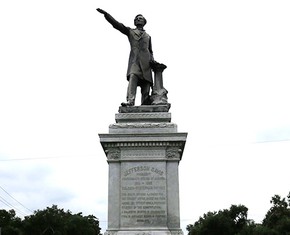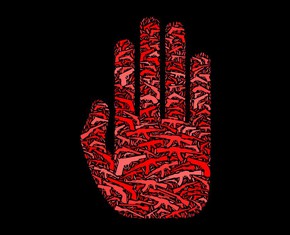The views expressed in our content reflect individual perspectives and do not represent the authoritative views of the Baha'i Faith.
Why does the world have so many refugees today? In 2023, the U.N. High Commissioner on Refugees (UNHCR) said that 110 million people are now forcibly displaced worldwide — the highest number ever recorded.
Imagine it, if you can: more than a hundred million children, women, men, and seniors are on the move right this moment.
They flee oppression, religious persecution, poverty, civil and invasive wars, terrorism, lack of opportunity, joblessness, and crime. Hundreds of millions more eke out a meager existence in tent camps or on our streets, seeking asylum wherever they can.
Yet we tout freedom as a basic human right.
RELATED: What Do Religions Have to Say about Refugees and Migration?
Of course, bodies such as the United Nations, and many individual countries, as well, provide humanitarian services to alleviate what problems they can. Noble people and good organizations try to help, but the scale of the problem overwhelms our resources, and new crises strike daily. No silver bullet solution seems to exist. Refugee numbers continue to rise. Even the passage of time cannot solve such a massive, continually-worsening problem, and that leads to the death of hope.
The Baha’i teachings say that these issues will not be solved as long as humanity ignores their root cause. Baha’u’llah — the prophet and founder of the Baha’i Faith — attributed that root cause to a “lamentably defective” international order: “The signs of impending convulsions and chaos can now be discerned, inasmuch as the prevailing Order appeareth to be lamentably defective.”
In a 1939 telegram, as Hitler prepared his armies before WWII erupted, Shoghi Effendi, the Guardian of the Baha’i Faith, wrote to the American Baha’is: FRESH OMINOUS RUMBLINGS DEMONSTRATE INEVITABILITY FORESHADOW APPROACH FINAL ERUPTION INVOLVING DISSOLUTION LAMENTABLY DEFECTIVE INTERNATIONAL ORDER.
Humanity has done much to improve the quality of life for citizens in some countries and places since the end of WWII, but much work remains. Good works rely on government and just laws, sane religiosity and spirituality, and uses for technology that improve people’s lives and increase cooperation and sharing. But too many of us are desperate, especially the hundreds of millions of refugees now roaming across the face of the Earth looking for a safe place. No matter where we live, three things everyone desperately wants — certainty, security, and stability — are hard to come by today, because the world is in a state of massive disorder.
Humanity now needs, the Baha’i teachings strongly assert, a unified, peaceful, and functional international order to take the place of the disordered, chaotic, and violent one we now live under. In 1985 the democratically-elected global governing body of the world’s Baha’is, the Universal House of Justice, wrote:
In the Baha’i view, recognition of the oneness of mankind “calls for no less than the reconstruction and the demilitarization of the whole civilized world — a world organically unified in all the essential aspects of its life, its political machinery, its spiritual aspiration, its trade and finance, its script and language, and yet infinite in the diversity of the national characteristics of its federated units.”
This gradual unification is underway, slowly but surely. A century ago, after the horrible death and destruction of World War I, some countries formed the League of Nations to avert similar tragedies. When that initial effort didn’t work, after World War II more countries formed the United Nations. For the past three-quarters of a century, the UN has helped avert many potential wars — but it, too, has proven itself unable to unify the world’s nations and stop all violent outbreaks, invasions, and human rights violations.
RELATED: What Should Rich Nations Do about Refugees and Migrants?
Rampant nationalism represents one major barrier to world unity, as the Universal House of Justice also wrote:
Unbridled nationalism, as distinguished from a sane and legitimate patriotism, must give way to a wider loyalty, to the love of humanity as a whole. Baha’u’llah’s statement is: “The earth is but one country, and mankind its citizens.” The concept of world citizenship is a direct result of the contraction of the world into a single neighborhood through scientific advances and of the indisputable interdependence of nations.
Divisive, unproductive, and self-interested politics forms another barrier, only providing inadequate and poor governance.
The Baha’i administrative order provides an alternative. It is democratic, global, and functional at all levels — locally, nationally, and internationally. It unites diverse groups of people rather than dividing them. It provides a model for a non-partisan, non-political system of governance that does away with the fractious nationalism that leads to war and displacement.
The Baha’i teachings clearly say that until we embrace the reality of global citizenship, seeking peace, freedom, stability, and a secure life for all of the world’s peoples will not succeed. Instead, we must recognize our common humanity, begin to transcend barriers, borders, and boundaries, and work together for trans-national solutions to our common problems.
















Comments
Sign in or create an account
Continue with Googleor